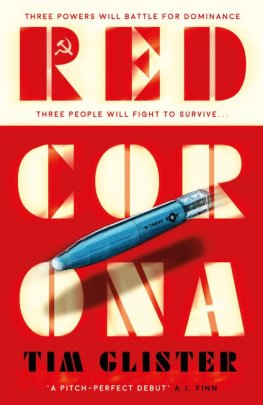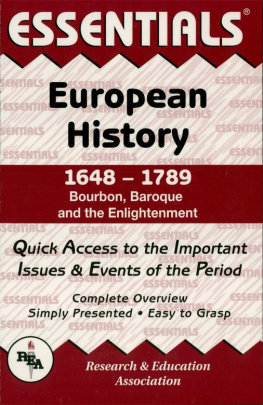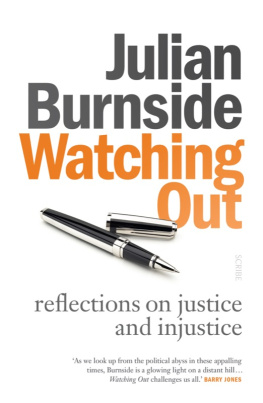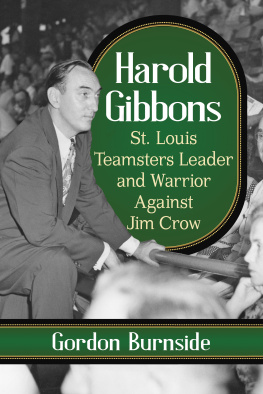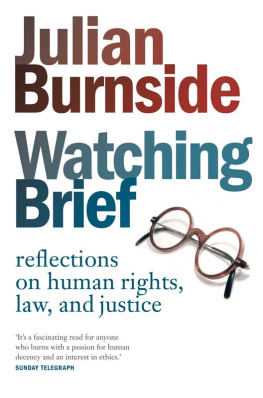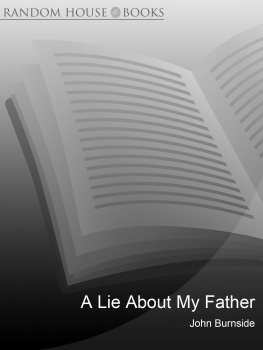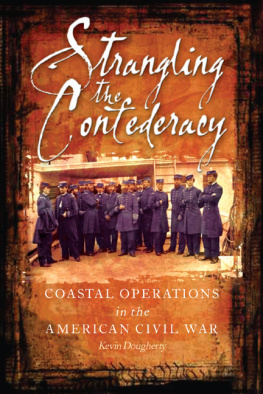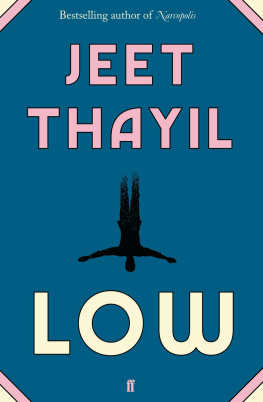John Burnside - The Glister
Here you can read online John Burnside - The Glister full text of the book (entire story) in english for free. Download pdf and epub, get meaning, cover and reviews about this ebook. year: 2009, publisher: Nan A. Talese, genre: Detective and thriller. Description of the work, (preface) as well as reviews are available. Best literature library LitArk.com created for fans of good reading and offers a wide selection of genres:
Romance novel
Science fiction
Adventure
Detective
Science
History
Home and family
Prose
Art
Politics
Computer
Non-fiction
Religion
Business
Children
Humor
Choose a favorite category and find really read worthwhile books. Enjoy immersion in the world of imagination, feel the emotions of the characters or learn something new for yourself, make an fascinating discovery.

- Book:The Glister
- Author:
- Publisher:Nan A. Talese
- Genre:
- Year:2009
- Rating:3 / 5
- Favourites:Add to favourites
- Your mark:
- 60
- 1
- 2
- 3
- 4
- 5
The Glister: summary, description and annotation
We offer to read an annotation, description, summary or preface (depends on what the author of the book "The Glister" wrote himself). If you haven't found the necessary information about the book — write in the comments, we will try to find it.
The Glister — read online for free the complete book (whole text) full work
Below is the text of the book, divided by pages. System saving the place of the last page read, allows you to conveniently read the book "The Glister" online for free, without having to search again every time where you left off. Put a bookmark, and you can go to the page where you finished reading at any time.
Font size:
Interval:
Bookmark:
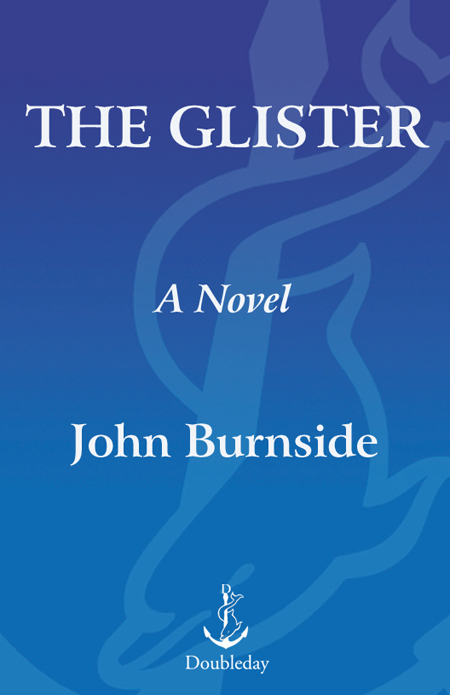
ALSO BY JOHN BURNSIDE

FICTION
The Dumb House
The Mercy Boys
Burning Elvis
The Locust Room
Living Nowhere
The Devil's Footprints
POETRY
The Hoop Common Knowledge
Feast Days
The Myth of the Twin
Swimming in the Flood
A Normal Skin
The Asylum Dance
The Light Trap
The Good Neighbor
Selected Poems
Gift Songs
NONFICTION
A Lie About My Father
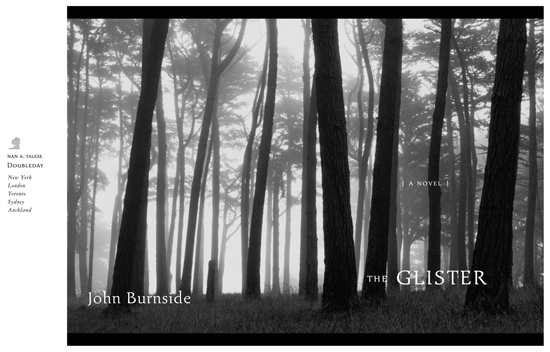
Hist, then. How dost thou know that some entire, living, thinking thing may not be invisibly and uninterpenetratingly standing precisely where thou now standest; aye, and standing there in thy spite? In thy most solitary hours, then, dost thou not fear eavesdroppers?
H ERMAN M ELVILLE Moby-Dick, or, The Whale
Buoyed up by that coffin, for almost one whole day and night, I floated on a soft and dirge-like main. The unharming sharks, they glided by as if with padlocks on their mouths; the savage sea-hawks sailed with sheathed beaks. On the second day, a sail drew near, nearer, and picked me up at last. It was the devious-cruising Rachel, that in her retracing search after her missing children, only found another orphan.
H ERMAN M ELVILLE Moby-Dick, or, The Whale
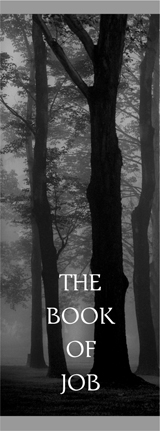
I N THE BEGINNING, JOHN MORRISON IS WORKING IN HIS GARDEN. NOT the garden at the police house, which he has long neglected, and not the allotment he rented when he was first married, but the real garden, the only garden, the one he likes to think of as a shrine. A sacred place, like the garden in a medieval Resurrection. To anyone else, it would look like nothing more than a patch of flowers and baubles, set out in a clearing amid the poison wood, just above the old freight line; but then nobody else could ever see its significance. Morrison created this garden himself and he has maintained it for seven years: a neat square of poppies and carnations, dotted here and there with the knuckles of polished glass and stone that he collects on his long walks around the Innertown and the wasteland beyond, filling the pockets of his police uniform with worthless treasure as he pretends to go about his duties. Of course, these days, he has no real duties, or none he could ever believe in. Brian Smith saw to that, years ago, when Morrison made the one big mistake of his careerthe one big mistake of his life, other than marriage.
That was the day when Smith talked him into concealing the first of the Innertown disappearances. Now, with five boys missing, Morrison is almost ashamed to show his face on the street. Not that anybody knows about the lie, the confidence trick, that he has perpetrated upon them all. People want to know where the Innertown children have gone, but aside from the families of the missing boys, nobody expects anything much from him. They know he doesn't have the training or the resources to track the boys down, and they also know that nobody beyond their poisoned tract of industrial ruin and coastal scrub cares a whit about what happens to the Innertown's children. Even the families give up after a while, sinking into mute bewilderment, or some sad regime of apathy and British sherry. After more than a decade of dwindling hopes for their town and for their children, people have become fatalistic, trying to find, in indifference, the refuge they once sought in the modest and mostly rather vague expectation of ordinary happiness that they were brought up to expect. Some choose to believe, or to say they believe, the official linethe line Morrison himself puts out, with more than a little help from Brian Smith. In this version of events, a story full of convenient and improbable coincidences, each of the boys left the Innertown of his own accord, independently and without speaking a word to anyone, to try his luck in the big wide world. Some say this story is credible, boys being boys. Others say it is far-fetched, that it seems most unlikely that all five of these bright children, boys in their mid-teens with families and friends, would wander off suddenly, and without warning. Among this group, there are those who say that the boys have, in fact, been murdered, and that they are probably buried somewhere in the ruins of the old chemical plant between the Innertown and the sea, where their mutilated bodies will decay quickly, leaving no trace that could be distinguished from the dead animals and anonymous offal that people find out there all the time. This latter group gets restless on occasion, usually just after a new disappearance. They demand a full investigation, they want independent outsiders to come in and conduct an official inquiry. They write letters; they make phone calls. Nothing happens.
Mostly, however, the town goes about its business; though, these days, it would seem that its sole business is slow decay. Of course, Morrison's business is to walk his beat, make himself visible, try to suggest that law and order means something in the Innertown. This is his function, to be seenbut Morrison hates to be seen, he wants to be invisible, he wants, more than anything, to disappear, and on this warm Saturday afternoon in late July, he is out at his secret garden, weeding and clearing so the few flowers he planted in the spring might not be smothered by grass and nettles. To begin with, this makeshift shrine had been dedicated to Mark Wilkinson, the first boy to disappearthe one that Morrison had, in fact, found. Later, though, it became more generic, a memorial to all the lost boys, wherever they might be. Nobody else knows about this garden, and Morrison always feels nervous coming out here, afraid of being caught out, afraid someone will guess what all this means. The shrine is fairly well concealed, because the event it commemorates happened, as such things must, in this hidden place, or somewhere nearby at least. Once, he found the little garden kicked apart and trampled, the flowers uprooted, the glass and stones scattered far and wide, but he guessed right away that this was nothing more than the usual vandalism. Some kids from the Innertown had come across his handiwork and smashed it without even thinking, in the routine way that kids from the Innertown have in everything they do, but Morrison is fairly sure that they hadn't realized what the shrine meant, and he simply built it up again, plant by plant, pebble by pebble, till it was, if anything, better than before. Whenever he can, he comes out here to maintain it. When yet another boy vanishes into the night, he extends it a little, adding new plants, new heaps of sand-polished glass and stone.
He finds the best stones on Stargell's Point, his favorite place nowadays, because nobody else ever goes there. Even the kids avoid it. Everybody understands, by now, that the entire land under their feet is irredeemably soured, poisoned by years of runoff and soakaway from the plant, but in most areas nobody quite knows the extent of that souringwhereas Stargell's Point was always recognized as a black spot, even back in the good old days, when the people believed, through sheer force of will, that the chemical plant was essentially safe. They believed, of course, because they
Font size:
Interval:
Bookmark:
Similar books «The Glister»
Look at similar books to The Glister. We have selected literature similar in name and meaning in the hope of providing readers with more options to find new, interesting, not yet read works.
Discussion, reviews of the book The Glister and just readers' own opinions. Leave your comments, write what you think about the work, its meaning or the main characters. Specify what exactly you liked and what you didn't like, and why you think so.

